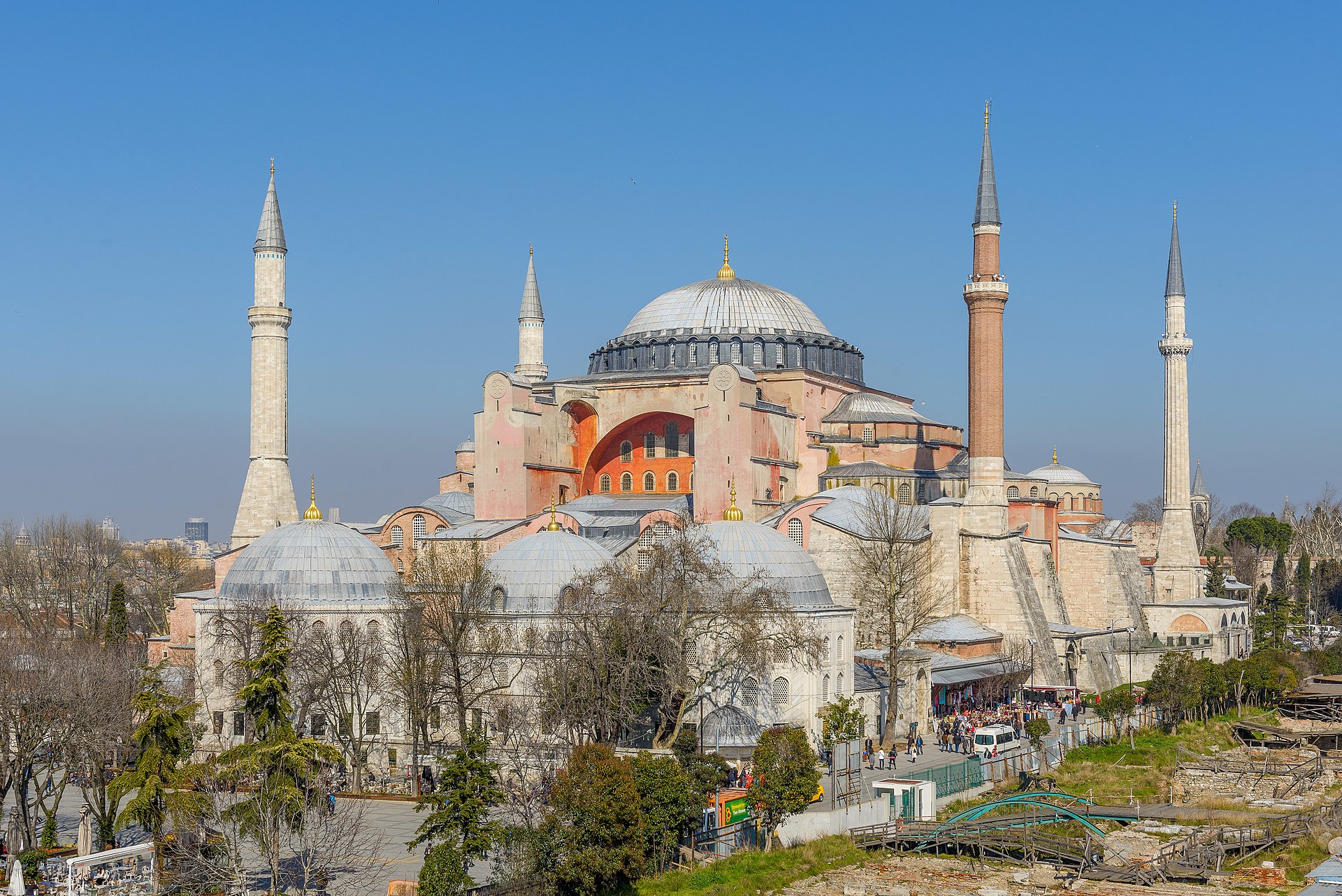
Calls for Action on Hagia Sophia
by Muriel Mirak-Weissbach
BERLIN, JULY 16, 2020 — On July 12, two human rights organizations based in Berlin issued a joint declaration on the decision taken a day earlier to alter the status of the Hagia Sophia in Istanbul. Both organizations have been in the forefront of efforts to gain official recognition of the genocide, efforts that led to the resolution in the German Bundestag (Parliament) passed in 2016. They are the Working Group for Recognition, against Genocide, and for Understanding among Peoples (AGA) and the Promotional Society for the Ecumenical Monuments for Genocide Victims of the Ottoman Empire (FÖGG).
In presenting the declaration, Dr. Tessa Hofmann, chairwoman of the AGA and Speaker of the Board of the FÖGG, called on readers to distribute the statement widely, to generate effective protest against this dangerous development. It reads (in translation):
“The news of the transformation of the Hagia Sophia into a mosque has touched and saddened us. There are some, however, who think one should not attribute such importance to it: Hagia Sophia was always a house of prayer and will now become one again!
In Turkey there is really no lack of mosques. Every year 1,500 new mosques are added — among them, all too often former Christian churches. So, Mr. Erdogan need not worry that there is no house of prayer available to the Muslim community in Istanbul.
Yet, the conversion of the cultural and architectural monument Hagia Sophia is not at all a matter of increasing the number of mosques; it is a continuation of the policy of the Young Turks, the former Committee of Unity and Progress. That policy consisted in not only physically eliminating over three million indigenous Christians, but, on completion of this genocide, in eradicating everything that might be reminiscent of the Christian legacy of Asia Minor and Mesopotamia. It was and is a matter of extinction or triumphant appropriation, in this case, of a historic and cultural monument of universal, unique significance. In addition, the Hagia Sophia is the most important place of worship for 300 million Orthodox Christians worldwide, comparable to the significance of Notre Dame in Paris for the world.
The rulers in Turkey, then and now, neither want to show consideration for the feelings of their Christian citizens, nor to display the necessary respect for their cultural heritage.
In such a confrontational political and social environment, where there is no respect for the historical heritage of the different communities in the country; nay, even more: where such actions clearly serve to encourage disrespect and disparagement, then atrocities and crimes like those committed by the ‘Islamic State’ are not far away.
The cheers shouted after the court ruling, by people who were triumphantly waving the Turkish flag with Muslim slogans, should suffice to give an idea of what spirit of hate and intolerance the highest decision makers want to awaken.
This engenders fear in Christians from the Near and Middle East, and understandably so. They are more than concerned. When, for religious or nationalistic motives, people begin to place themselves above others and to deny them respect, then there is reason to fear a step towards something worse.
It is on the contrary urgently necessary for Turkey finally to reflect on its rich and diverse heritage, as long as what remains of it, after genocide and mass expulsions, is still extant. It is necessary to treat this heritage in school textbooks, so that people may learn what great cultural achievements the ancestors of the Christian communities on the soil of current-day Turkey have contributed, and that these are part of the cultural heritage of Turkey.
An exclusive, nationalistic mode of thinking, consisting only of Turkishness and Islam, and deliberately ignoring or denigrating everything else cannot lead to a society based on solidarity. Such a notion must be rejected clearly and unequivocally.
The point here is not to incite Christians against Muslims. One should not fall into that trap of Erdogan’s. The point is to protect the esteem and feelings of Christian citizens in Turkey – precisely against the backdrop of the genocidal history of the 20th century– and to display the necessary respect and esteem to them.
Please do not take lightly the decision to turn Hagia Sophia into a mosque, do not accept it as given! This can have only catastrophic consequences. Christians in this region cannot feel at ease for long in an exclusively Turkish, nationalistic and religiously hostile society and will be directly or indirectly driven out, through verbal or physical violence.”
Amill Gorgis (Chairman of the FÖGG)
Prof. h.c. Dr. phil. Tessa Hofmann